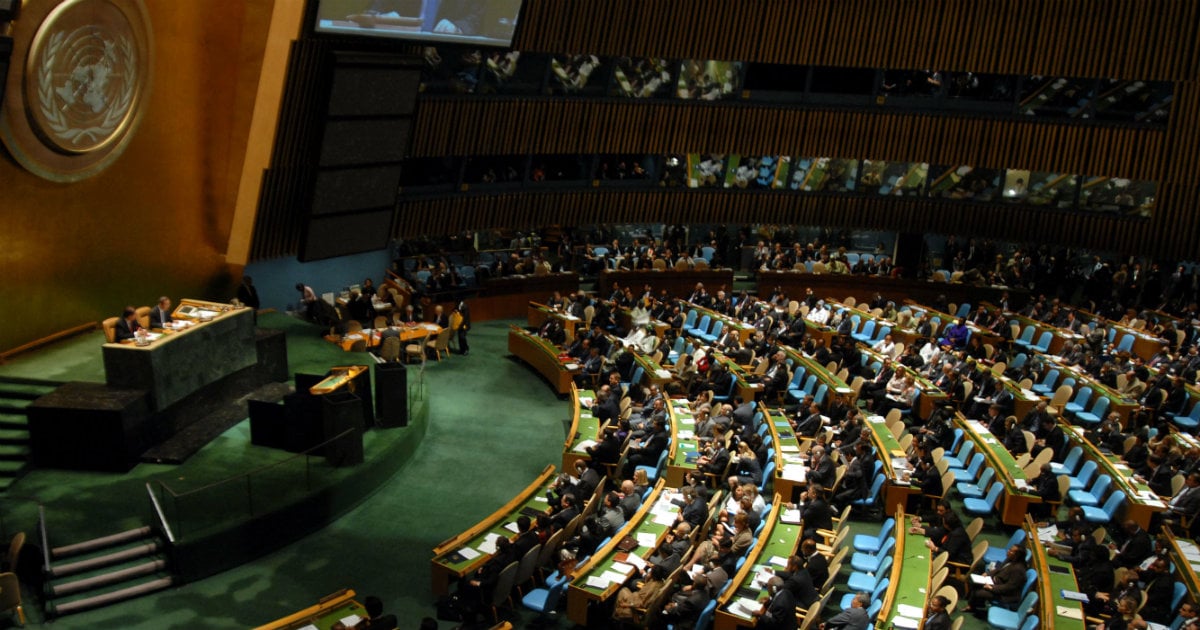For the thirty-second time, the United Nations General Assembly overwhelmingly supported a resolution demanding an end to the U.S. embargo on Cuba. This policy, which the Havana regime blames for the island's growing woes, was opposed by only two countries: the United States and Israel, with the Republic of Moldova abstaining. A total of 187 nations backed the resolution promoted by Cuba's communist government.
As anticipated, Cuba's Ministry of Foreign Affairs celebrated the decision on social media platform X, emphasizing that the world once more stands against what they call the "blockade." Similarly, Granma, the official state-run newspaper, hailed the resolution's passage—a customary and obligatory practice among state media in the largest of the Antilles.
Notable Abstentions and Voting Patterns
Moldova's abstention was a notable detail in the voting, while Ukraine, which in recent years has opted not to participate, was absent from the vote highlighted in the UN session. This annual exercise has been a fixture since 1992, when the resolution against the embargo first appeared on the UN agenda.
U.S. Policy Continuity Under Biden
In September, President Joe Biden extended the economic embargo against Cuba until 2025. This decision aligns with a longstanding tradition among both Republican and Democratic administrations over the past six decades. On September 13, the White House issued a formal memorandum, a day before the law was set to expire, stating that "The exercise of certain authorities under the Trading with the Enemy Act is scheduled to expire on September 14, 2024. I hereby determine that the continuation of these authorities concerning Cuba for one year is in the national interest of the United States."
The document, signed by Biden and sent to the Secretary of the Treasury, further reads, "Therefore, pursuant to the authority vested in me by section 101(b) of Public Law 95-223, I continue for one year, until September 14, 2025, the exercise of these authorities with respect to Cuba, as implemented by the Cuban Assets Control Regulations, 31 CFR part 515."
Impact of the Embargo and Future Prospects
With this renewal, the Cuban regime must wait until September 14, 2025, to learn of any potential changes to these longstanding policies, which the island's government has persistently criticized over the decades, without any modifications being granted thus far. The embargo, initially imposed partially in October 1960 in response to the nationalization of American businesses in Cuba, was expanded to a full embargo by February 1962. Since then, its renewal has become a routine procedure conducted annually by 13 U.S. administrations.
The embargo remains a contentious issue both in Cuba and internationally, with many arguing that this policy has worsened the economic hardships faced by the island's population. Meanwhile, the regime continues to use it as a justification for its failings and inefficiencies.
